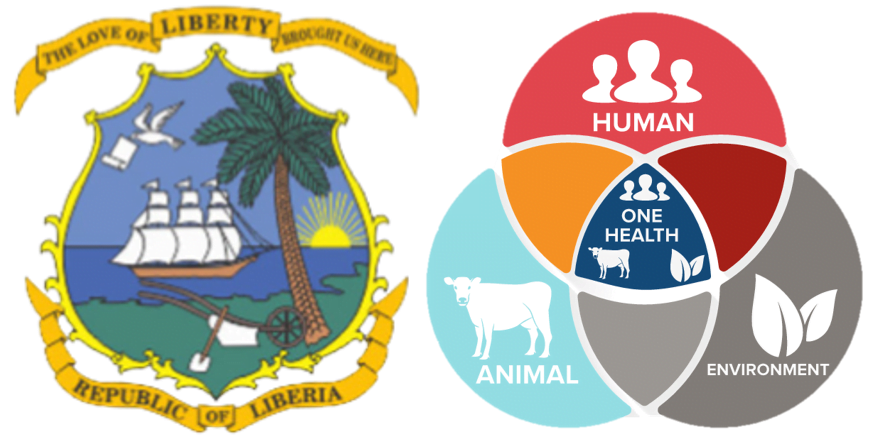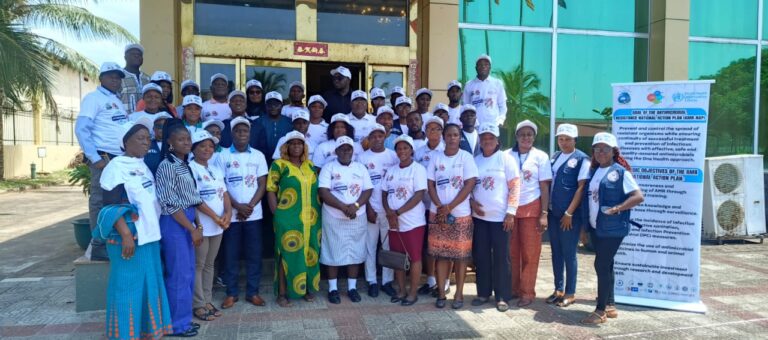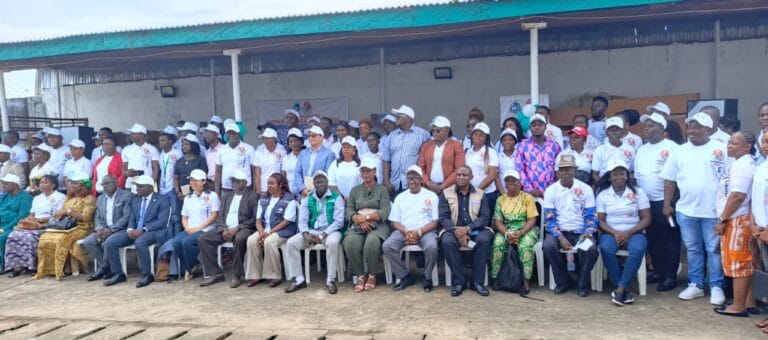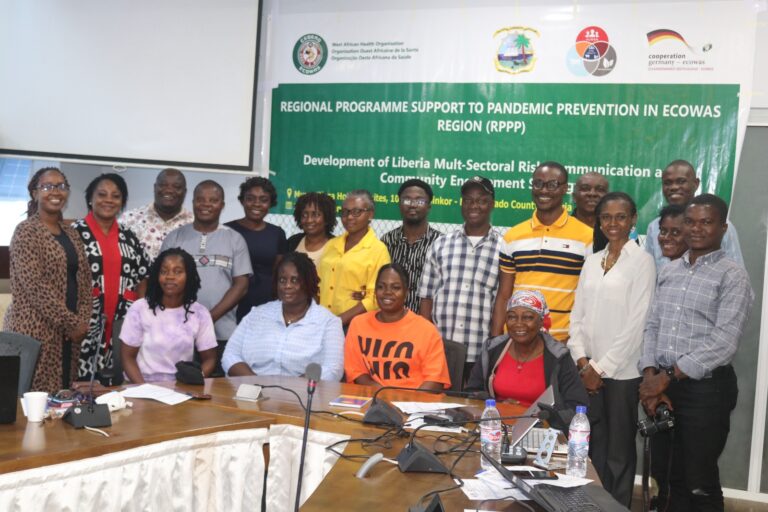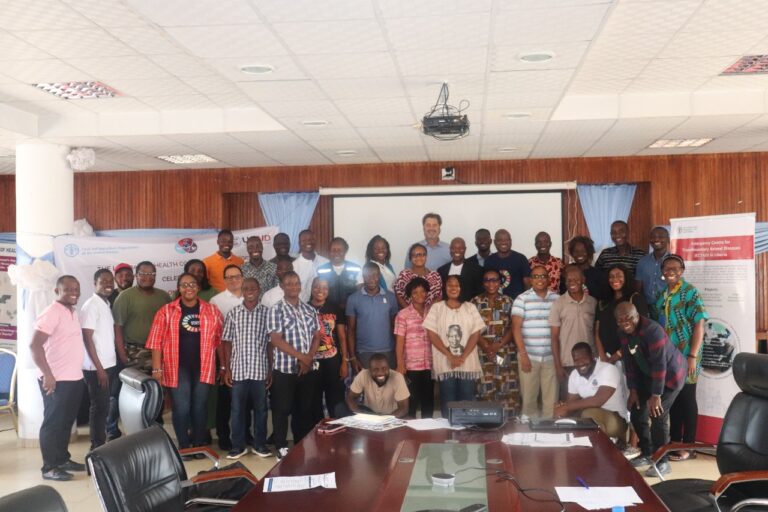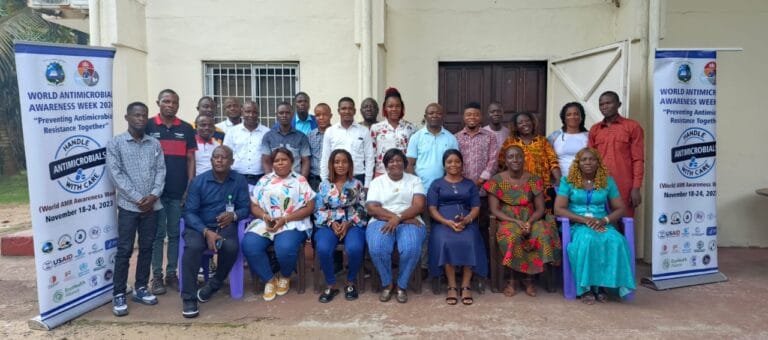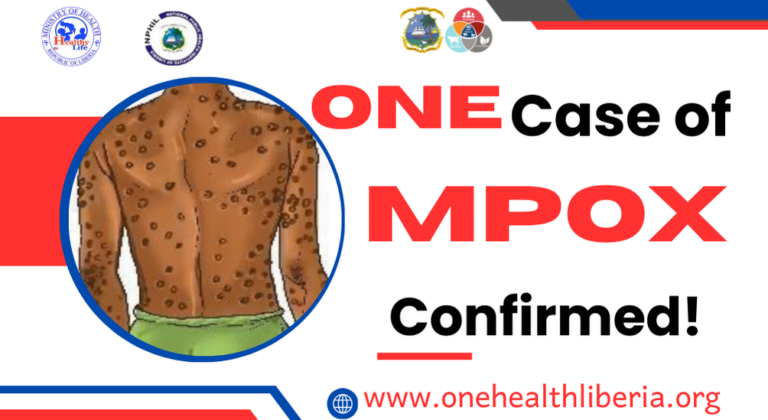Strengthening Public Health Emergency Preparedness through Strategic Operational Planning
In a concerted effort to bolster Liberia’s ability to respond to public health emergencies, key stakeholders have convened for a week-long Health Emergencies Strategic Operational Planning (HESOP) Workshop. This initiative, spearheaded by the National Public Health Institute of Liberia (NPHIL) through its Division of Infectious Disease and Epidemiology (DIDE) and supported by the US Centers for Disease Control and Prevention (US CDC) through the African Field Epidemiology Network (AFENET), is being held at D Calabash Hotel in Monrovia from March 31 to April 5, 2025.
The workshop brings together a diverse group of participants from various government agencies, including the Ministry of Health (MoH), Ministry of Agriculture (MoA), National Disaster Management Agency (NDMA), Forestry Development Authority (FDA), the Armed Forces of Liberia (AFL), the Liberia One Health Coordination Platform (LOHCP), and international partners such as the US CDC and AFENET. This broad-based participation underscores the necessity of a multi-sectoral approach to strengthening Liberia’s health security and emergency preparedness.
Public health emergencies require well-coordinated and strategic responses. The HESOP workshop serves as a crucial platform for stakeholders to engage in discussions, share expertise, and develop strategies that integrate effectively into the national emergency management framework.

In remarks during the opening session, Dr. Julius S.M. Gilayeneh, Sr., Deputy Director General for Technical Services, NPHIL, emphasized the importance of such initiatives in building a resilient public health system. He noted that lessons learned from past health crises, such as the Ebola virus disease outbreak and the COVID-19 pandemic, highlight the urgent need for proactive preparedness and strategic planning.
Also speaking on behalf of the Chief Medical Officer of the Republic of Liberia, Dr. Lourine Cooper, Director of County Health Services, Ministry of Health reiterated the significance of inter-agency collaboration, stressing that coordinated efforts will ensure a swift and effective response to public health threats. She called for stronger institutional partnerships and emphasized the role of robust health surveillance systems in early detection and response.
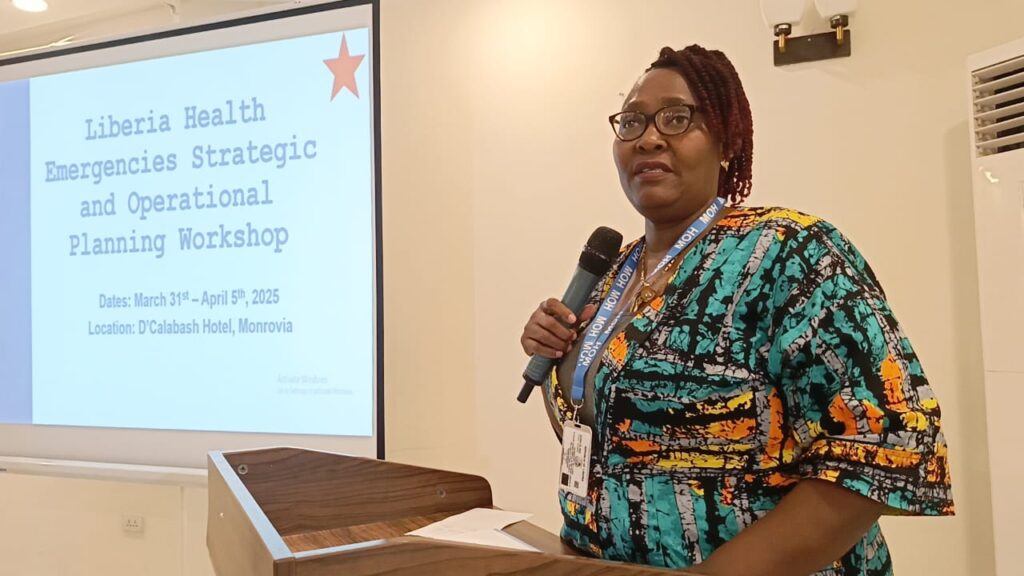
Dr. Dieula D. Tchoualeu, Acting Country Director of US CDC Liberia, reaffirmed the CDC’s commitment to supporting Liberia’s health security initiatives. She underscored the importance of data-driven decision-making and evidence-based strategies in public health emergency planning.
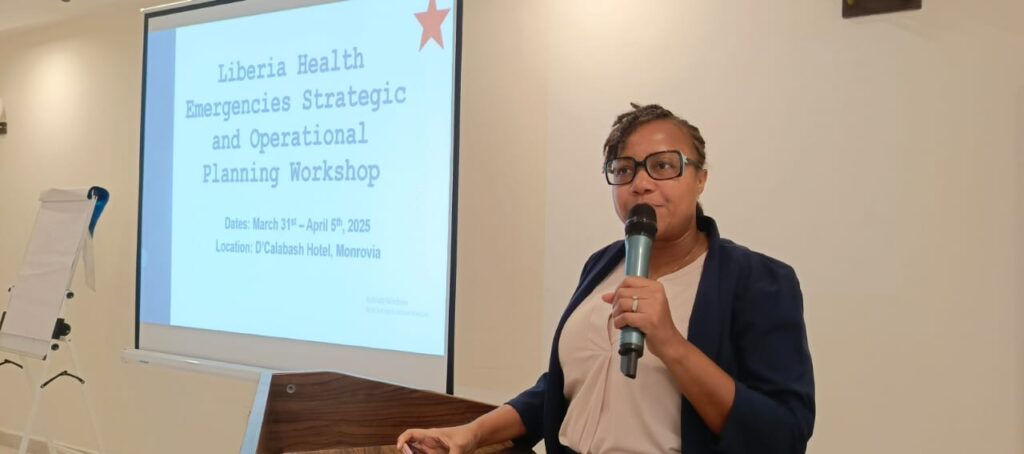
Atty. Ansu V.S. Dulleh, Sr., Executive Director of NDMA, emphasized the importance of inter-agency coordination. He highlighted the need for institutions to understand their statutory roles during emergencies to ensure a seamless and effective response mechanism. His remarks set the tone for discussions on strengthening partnerships and improving response efficiency.

The workshop’s primary objectives include establishing a technical working group to guide emergency preparedness initiatives, laying the groundwork for best practices in strategic and operational planning, fostering a whole-of-system approach to emergency management, drafting a Threats and Hazards Identification Process (THIP) document, compiling a database of essential stakeholders in health emergency response, formulating initial sections of both the Strategic and Operational Plans for Health Emergencies, and developing a roadmap for continuous progress beyond the workshop.
With Liberia’s history of public health challenges, this workshop represents a proactive step in ensuring that the country is not only prepared for future health crises but also equipped to mitigate risks and respond effectively when emergencies arise. As the workshop progresses, stakeholders will refine their collaborative strategies, ensuring that Liberia’s public health emergency preparedness remains robust, responsive, and resilient. The outcomes of this initiative will shape policies and actions that safeguard the health and well-being of the population.
